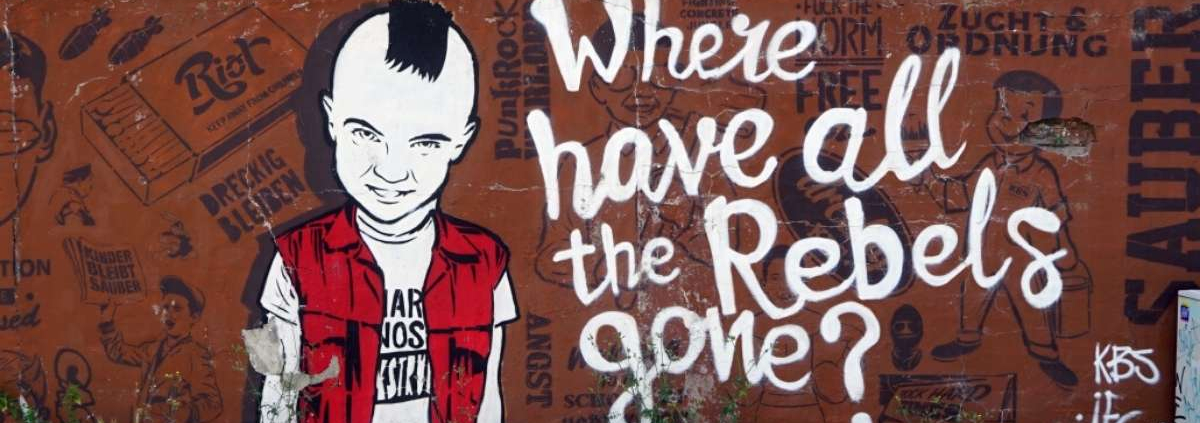Subculture of the Frustrated
Mayday Trust Director of Development and Strategic Partnerships, Lynn Mumford looks whether frustration can actually fuel the change that is needed.
I’ll let you into a secret. 4 years ago at Mayday, I handed in my notice. I’d had enough. I felt frustrated that, as the then Head of Fundraising, I couldn’t change anything. I was beholden to processes to bring in money that didn’t fit what was then the beginnings of working in a personalised way. I was trying to tick the boxes for money and feeling the backlash from people delivering the work. A defining moment was one of the managers taking a traditional funding specification, throwing it over their shoulder and saying it was pointless as it would have meant fitting people into boxes. At the time I was cross with them but I got what they meant. I so wish I could have done this myself but hey, we needed the money and I was a ‘funding professional’. I didn’t feel I had any power to do things differently and my frustration led me to throw in the towel.
Luckily, I was offered the opportunity to reconsider based on what I thought needed to change. My response was ‘I want Mayday Trust to be to the sector, what punk rock was to the music industry’. I wanted to have the bravery to take out what we were learning, to challenge the norm and create something that was outside of what we knew as traditional charity- but I don’t think I really understood what that meant until today.
Today I felt frustrated again. Frustrated that not everyone gets it, that progress feels too slow, that I have to still find ways around the system to get what we need to carry on challenging it. But I know now that this is exactly what I need to embrace. Frustration is what fuels change. It’s beyond motivation, it’s a compulsion.
When I reflect back on the analogy to punk rock, I get it now. It’s about a rising subculture; a group of people within a wider system or culture that differentiates itself from something that it traditionally belongs; maintaining some of its founding principles, in this case to make things better for people, but developing it’s own norms, systems, values and culture grown from the angst, experiences and voices of people experiencing tough times.
Subcultures spring up when more and more people aren’t happy with how things are, who have a splinter in their brains that something isn’t right and are compelled to behave in a way counter to the norm. This could be reflected in the way they dress (ditching the lanyards and professional wardrobe), the language they use (dropping the labels and terms like ‘clients’), their approach to interacting and challenging traditional concepts that don’t fit the new ideology (influencing through doing).
This often means personally feeling the backlash, disapproval, scepticism and dismissal of the parent culture, which from our experience, practitioners in this space have felt in bucket loads. But what keeps people within this new subculture going isn’t purely down to an individual’s resilience. It’s belonging to a wider environment and connection to a group of others that embrace these challenges and experiences and uses them to get closer a shared vision. This goes beyond organisations, authorities or hierarchies and links individual people to each other with invisible strings across the country based on mind-set, behaviour and belief.
These movements start through grassroots experiences, in our case, the Wisdom from the Streets inquiries; listening, hearing and responding to what isn’t working for people. But what comes next isn’t changing what already exists to tweak around the edges of the broken structure, but demands new independent responses, such as the Personal Transitions Service (PTS).
In the case of punk rock, this was new independent record labels, new venues or people starting to do it themselves outside of any structures or systems. The PTS has had to throw everything away and start again- prototyping, not co-producing (co-producing often leads to prescriptive projections and disappointment when things aren’t achieved as first thought) to create the right approach to trying things out, reflecting, learning, unlearning, failing and making sense of it all in retrospect. What’s come out of this isn’t a different or better version of what existed, but a new way of doing things that has completely reimagined the system and models what this looks like in practice.
Taking what doesn’t work and making it look better and using the right buzz words is as effective as your dad dressing up in skinny jeans, safety pins and shouting ‘OI’. It might look and sound like systems change, but without the continual frustration, the real sense of injustice, the pain, or the compulsion to keep going when you know you could be doing something a damn sight easier, failing and getting back up again despite the knocks and sneers – systems change will only ever be reduced to the resemblance of your dad dressing up trying to be cool. It has to be felt, not learned!
Punk was new, bold, brave and unafraid and grew out of frustration rather than running away from it or making it more palatable. I feel that systemic change will genuinely start to happen when we create the right environment that brings together and embraces the frustrated. When it shines a light on the learning and lessons that come out from the painful adolescence of this new and necessary subculture.


